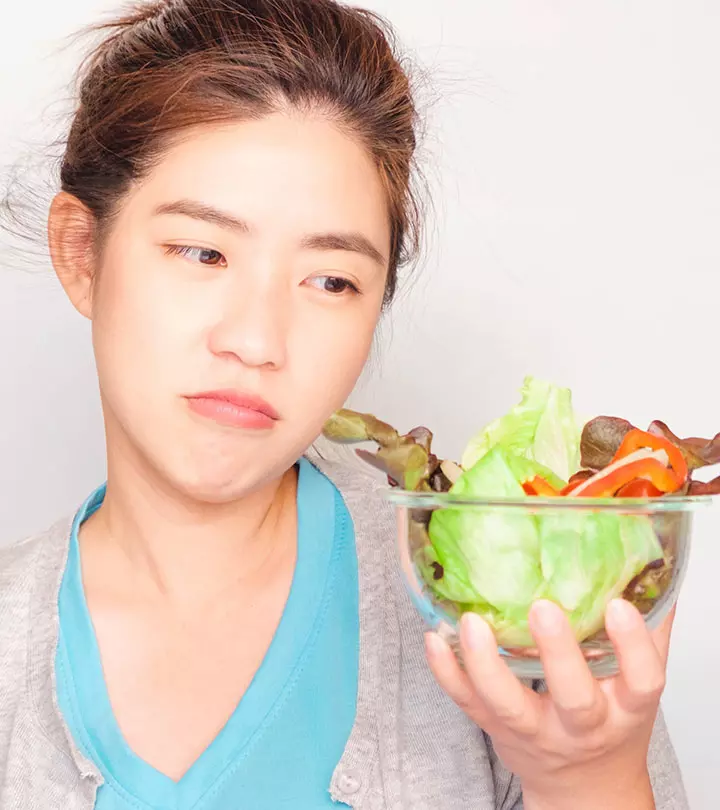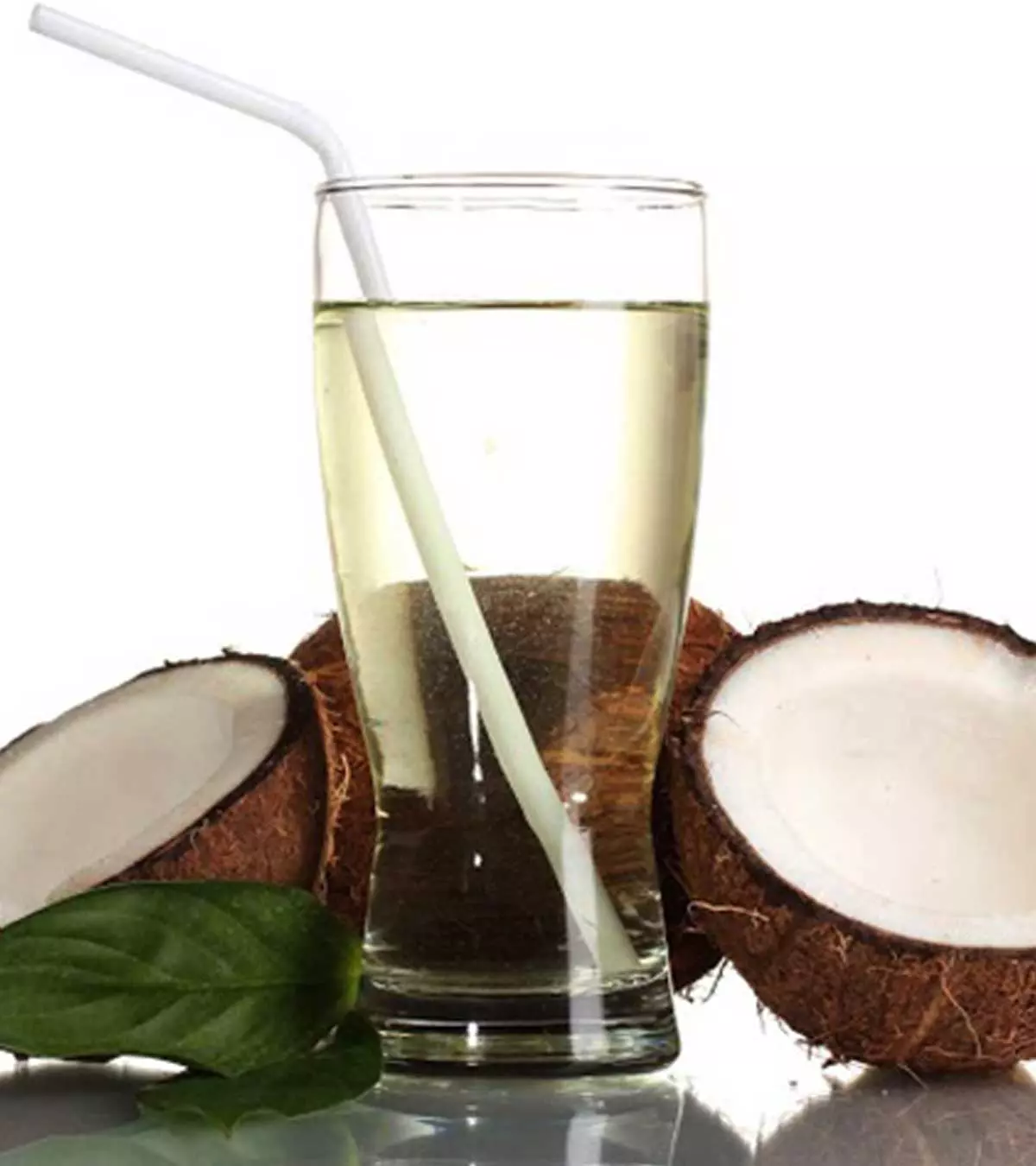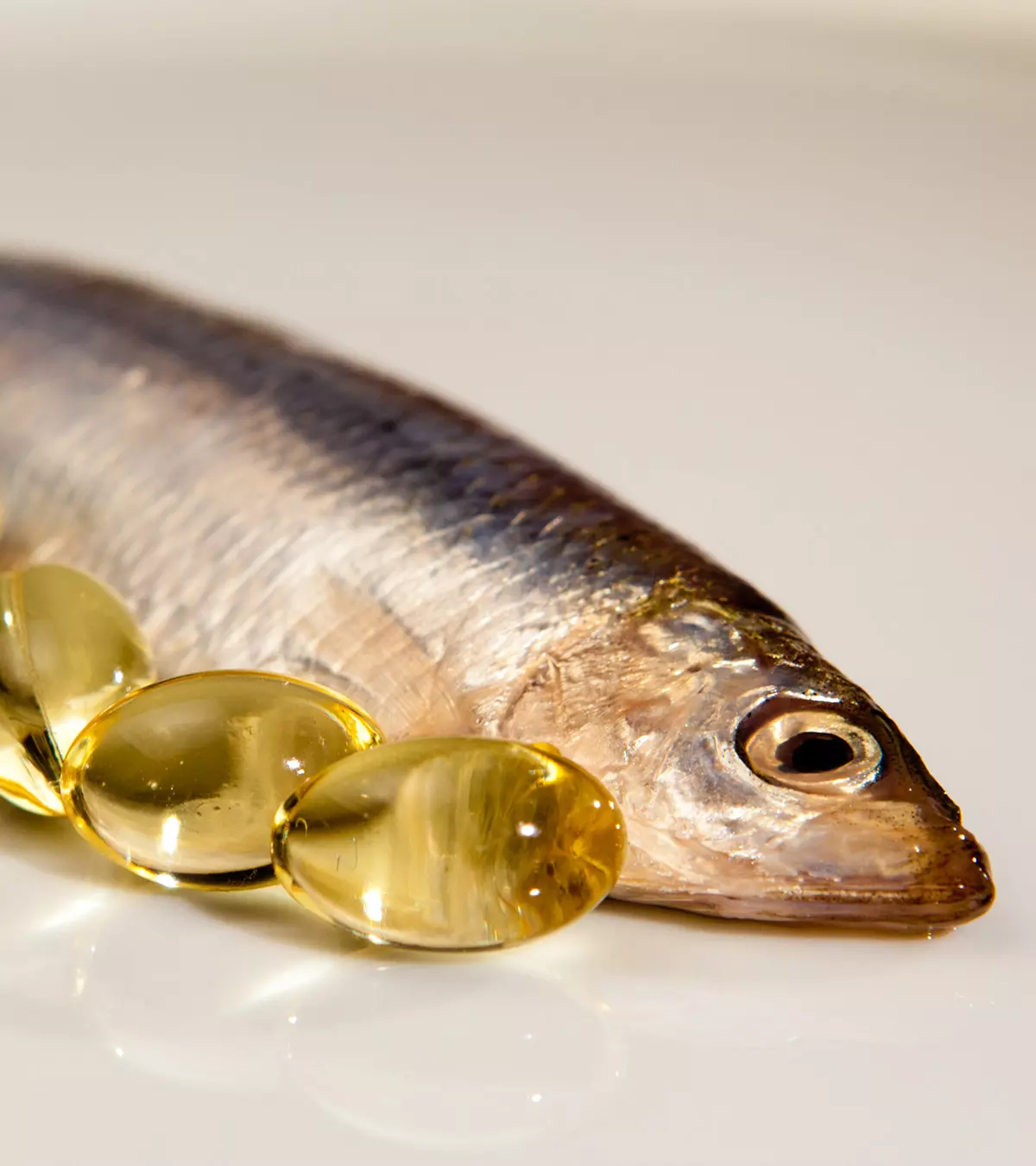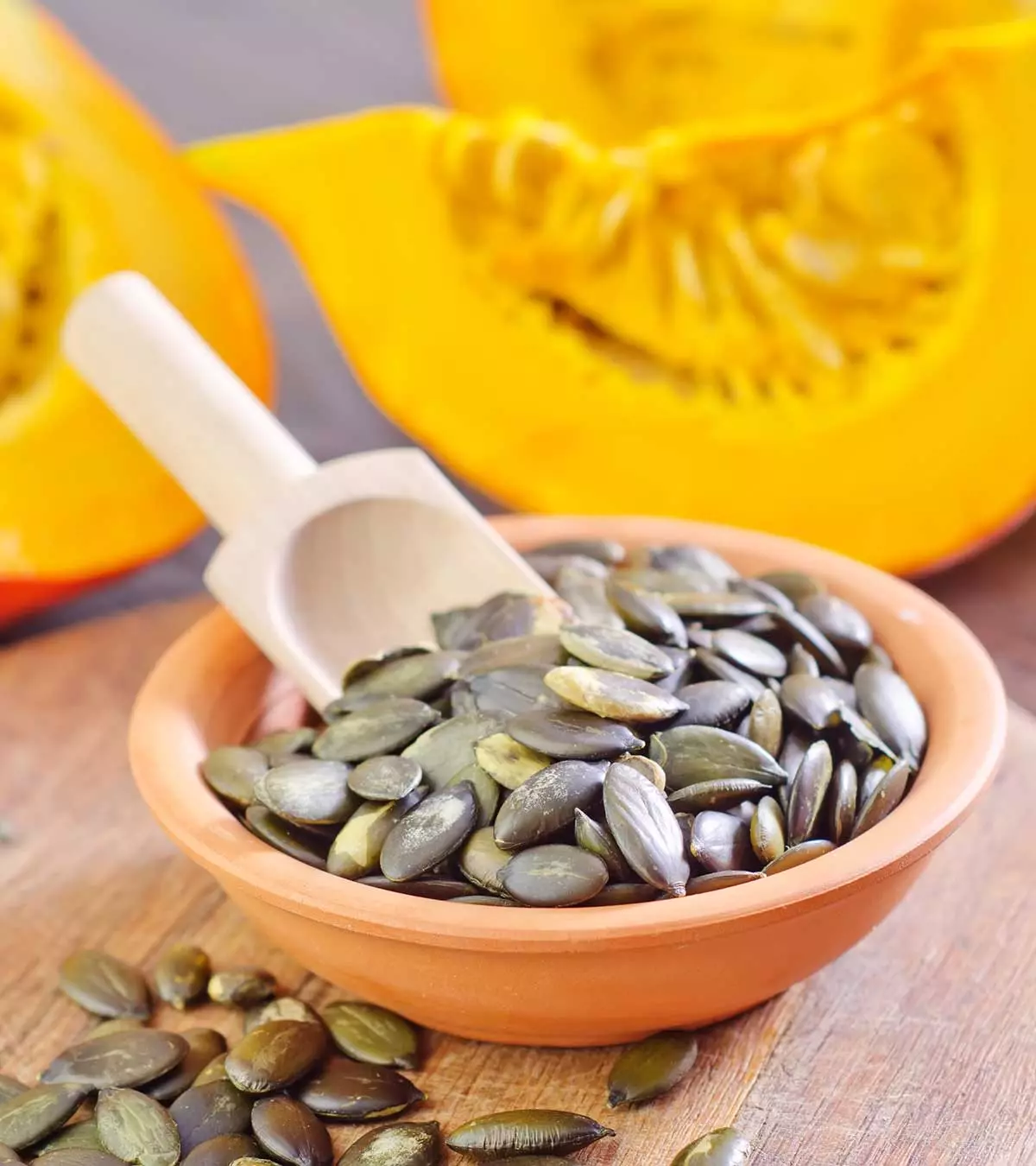
Image: Shutterstock
Most doctors advise against consuming additives during pregnancy and recommend sticking to basic and homemade meals and organic foods. One food additive that your doctor may recommend that you be wary of is monosodium glutamate or MSG during pregnancy. Whatever you eat or consume daily throughout your pregnancy can significantly impact you and your baby. MSG has no unique flavor of its own, but it is used to enhance the inherent savory flavor of various meals. While MSG is generally safe to consume, you may want to consider whether it is safe for maternal health. Read this post to know more about MSG and its effects on pregnancy.

Key Pointers
- MSG (Monosodium glutamate) is a food additive and flavoring substance that’s considered safe by the US FDA.
- If you have a known allergy to MSG, avoid it during pregnancy to prevent allergic reactions such as sweating, flushing, headache, nausea, chest pain, and muscle tightening.
- Consuming MSG during pregnancy hasn’t been proven to have any adverse effects on pregnancy.
- It’s best to limit or avoid MSG intake during pregnancy and focus on eating fresh and nutritious foods for a healthy pregnancy.
What Is MSG?
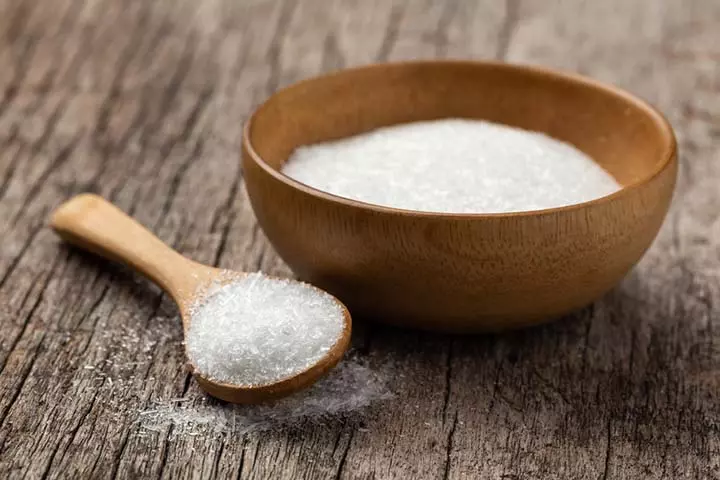
Monosodium glutamate is a food additive and flavoring substance used primarily in various cuisines. MSG is also a common component in many packaged, especially ready-to-eat canned foods, and is used to add flavor and taste. The US Food and Drug Administration (US FDA) allows the addition of MSG to food as an additive to be “generally recognized as safe” (GRAS), which means it is a safe food ingredient (1).
 Did you know?
Did you know?MSG And Pregnancy Effects
Is MSG harmful during pregnancy? This is one big question that can be raised. Here are a few things you should keep in mind:
1. Avoid if you are allergic

It is best to avoid eating msg during pregnancy, if you are allergic to it, as the effects and allergic reaction could multiply in reaction. MSG has been known to cause certain allergy type reactions with symptoms which include but are not limited to (2):
- Sweating and flushing
- Headache, numbness and muscle tightening
- Nausea and chest pain
2. Avoid if you have water retention
You may experience water retention during pregnancy. Salt is a major contributor to this problem. If your body is retaining excess water during your pregnancy, avoid MSG and consider a low-sodium diet.
3. Glutamate effects
As per a study, when MSG was injected into pregnant monkeys, there was no increase in glutamate levels. In fact, the amino acids were transferred, ensuring fetal growth (3). Studies on the effect of long-term use of MSG in rats affected cognitive development and led to autism-like behaviors in the offspring (10). However, it is important to note that this was in animal studies, and it is not precisely known if these effects are applicable to humans.
The Best Way to Deal With MSG Exposure
There is no proven scientific study that says MSG has a proven adverse effect on women and the fetal development during the pregnancy. However, since pregnancy leads to hormonal changes, you may have heightened responses from the body. The best way to deal with MSG is:
- Avoid it if you are allergic to MSG.
- Avoid it if you want to exercise caution and pregnancy complications.
- When eating at restaurants, mention your concerns and request food suggestions without MSG.
- Always read food labels while purchasing packaged or processed foods.
 Quick fact
Quick factHow To Know If Food Has MSG?
As a mandate, the FDA has instructed all food manufacturing and packaging companies to mention the MSG content-related information on the food packet. The FDA has assigned specific code numbers to identify glutamate-based flavor enhancers. Food labels may list this ingredient as ‘flavor enhancer 261’ or ‘monosodium glutamate’ (12). Therefore, while buying any packaged food or processed food, you can make an informed choice by reading through the nutritional labeling on the food products.
Remember that MSG is a naturally occurring substance and is present in foods that contain ingredients like hydrolyzed vegetable protein, autolyzed or hydrolyzed yeast, yeast extract, soy extracts, protein isolate, seaweed, tomatoes, and cheeses as the core ingredients. Therefore, these may also be identified on food labels as the FDA insists on it and prohibits food products containing such ingredients from being categorized under the ‘no MSG’ or ‘spices and flavoring’ labels (11).
Which Common Foods Contain MSG?
MSG is found in several consumable items. Processed and packaged items like chips, soups, and canned goods frequently include MSG as a flavor enhancer. Condiments like ketchup, mayonnaise, barbecue sauce, and soy sauce often contain MSG. Several seasoning blends also use MSG to intensify the taste and umami flavor of different foods, such as soups and stews. It’s best to avoid frozen foods, processed meats, fast food, and noodles during pregnancy as they can also contain MSG in varying amounts (1) (4).
Is It A Yes Or No To Msg During Pregnancy?

During pregnancy, always try to have fresh food, practice healthy eating habits and avoid packaged and processed food as it has reduced nutritive value. Exercise caution when you go out to eat or buy packaged food. MSG can make your food flavorful and sumptuous, but is it worth the health of your baby? We suggest minimal or no consumption of MSG during pregnancy. It is important that your baby gets all the necessary nutrients needed for healthy development. Do check on the same with your doctor to get the most informed advice. Eat healthy, and practice food safety for what you eat is what your baby does!
Frequently Asked Questions
1. Can MSG cause birth defects in the baby?
A study conducted in rats demonstrated that administering MSG during pregnancy negatively impacted fetal growth and skeletal development, confirming MSG’s toxic and teratogenic effects (5). More human studies need to be conducted to produce conclusive evidence.
2. Does MSG affect the development of the baby’s brain?
A study showed that oral consumption of MSG at acceptable daily doses may promote injuries in the brain and cause brain cell damage in infant mice (6). Further studies are needed to determine if these effects occur in humans.
3. Does MSG affect the taste of breast milk?
It is not known whether MSG affects breast milk’s taste. Most mothers who consume MSG may not notice any difference in their babies’ feeding patterns, indicating that MSG may have little to no effect on the milk’s taste.
4. Does MSG affect the mother’s mood or mental health?
A study evaluated the role of dietary MSG in psychiatric stress. It was found that MSG may be associated with the onset and progression of psychiatric symptoms (7). However, more research is needed to determine if MSG is the cause or if other factors also play a role.
5. Are there any alternatives to MSG for flavoring foods?
Yes, several alternatives to MSG can enhance flavor without the associated risks. You can use natural flavor enhancers such as lemon juice, vinegar, herbs, and spices to make your meals tasty without added preservatives.
Studies have not yet proven any adverse effects owing to MSG intake. However, consuming MSG during pregnancy is not recommended, especially if you have had allergic reactions, such as headache, morning sickness, and sweating. Further, avoiding MSG and other salts is recommended if you experience excess water retention and bloating in pregnancy. Carefully read all food labels, especially packaged and processed foods, to ensure they do not contain MSG. Further, include more fresh foods in your diet for a healthy and safe pregnancy.
Infographic: Side Effects Of MSG In Pregnant Women
Monosodium glutamate (MSG) is known for its savory taste and flavor and is used as an additive for various dishes. However, it may cause a few adverse effects, and pregnant women are particularly more sensitive to the effects of MSG. The below infographic mentions the probable side effects of monosodium glutamate in pregnant women.
Some thing wrong with infographic shortcode. please verify shortcode syntaxThere is a lot of hearsay and rumor about the adverse effects of this flavoring agent. Watch this video to clear all your doubts as it presents a clear picture concerning the truth behind MSG and its effects on our health.
References
- Questions And Answers on Monosodium glutamate (MSG).
https://www.fda.gov/food/food-additives-petitions/questions-and-answers-monosodium-glutamate-msg - MSG symptom complex.
https://medlineplus.gov/ency/article/001126.htm - Fact or Fiction. The MSG Controve
https://dash.harvard.edu/bitstream/handle/1/8846733/Sing05.pdf - How Can You Know if There Is Monosodium Glutamate in a Processed Meat or Poultry Product?
https://ask.usda.gov/s/article/How-can-you-know-if-there-is-monosodium-glutamate-MSG-in-a-processed-meat-or-poultry-product - The Umami Factor: 4 Surprising Facts about MSG.
https://foodinsight.org/the-umami-factor-4-surprising-facts-about-msg/ - Some Facts about Monosodium Glutamate (MSG).
https://www.ctahr.hawaii.edu/oc/freepubs/pdf/FN-8.pdf - Hadeer M. Shosha et al.; (2025); Effect of monosodium glutamate on fetal development and progesterone level in pregnant Wistar Albino rats.
https://link.springer.com/article/10.1007/s11356-023-25661-x - Majeda Noori Ibrahim et al.; (2025); Histological Effects of Monosodium Glutamate on Brain of Infant Albino Swiss Mice Mus Musculus.
https://www.jmchemsci.com/article_137536.html - A. Zarina Kraal et al.; (2025); Could dietary glutamate play a role in psychiatric distress?
https://www.ncbi.nlm.nih.gov/pmc/articles/PMC6667320/ - Zohreh Soltani et al.; (2025); Investigating the effect of exposure to monosodium glutamate during pregnancy on development of autism in male rat offspring.
https://pubmed.ncbi.nlm.nih.gov/38244665/ - Questions and Answers on Monosodium glutamate (MSG).
https://www.fda.gov/food/food-additives-petitions/questions-and-answers-monosodium-glutamate-msg - Monosodium glutamate (MSG).
https://www.foodauthority.nsw.gov.au/food-labelling/food-production/msg
Community Experiences
Join the conversation and become a part of our nurturing community! Share your stories, experiences, and insights to connect with fellow parents.
Read full bio of Hannah Whittaker
Read full bio of Anshuman Mohapatra
Read full bio of Rebecca Malachi
Read full bio of Dr. Joyani Das












